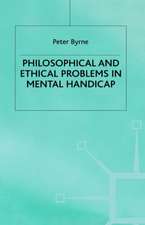Activist Business Ethics
Autor International Business Programsen Limba Engleză Paperback – 29 sep 2004
Preț: 250.24 lei
Nou
Puncte Express: 375
Preț estimativ în valută:
47.88€ • 50.13$ • 39.62£
47.88€ • 50.13$ • 39.62£
Carte disponibilă
Livrare economică 15-29 martie
Preluare comenzi: 021 569.72.76
Specificații
ISBN-13: 9780387228488
ISBN-10: 0387228489
Pagini: 212
Ilustrații: IX, 200 p.
Dimensiuni: 155 x 235 x 11 mm
Greutate: 0.36 kg
Ediția:2005
Editura: Springer
Colecția Springer
Locul publicării:New York, NY, United States
ISBN-10: 0387228489
Pagini: 212
Ilustrații: IX, 200 p.
Dimensiuni: 155 x 235 x 11 mm
Greutate: 0.36 kg
Ediția:2005
Editura: Springer
Colecția Springer
Locul publicării:New York, NY, United States
Public țintă
Professional/practitionerCuprins
Activist Ethics in Business.- Ethical and Democratic Evolution.- Activist Business Ethics in Christianity.- Activist Business Ethics in Judaism.- Activist Business Ethics in Other Religions.- Activist Business Ethics in Philosophy.- Psychological and Psychoanalytical Aspects.- International Aspects.- The Personification of Stakeholders.- The Predominance of Values and Ethics for CEOs.- The Methodological Approach of the Book.- The Inefficient Existing Safeguards of the Stakeholders’ Interests.- Internet, Transparency, Activist Associations and Ethical Funds.- Future Activist Vehicles - The Supervision Board.- Future Activist Vehicles - The Institute of Ethics.- Conclusion.
Textul de pe ultima copertă
Jacques Cory's second book Activist Business Ethics expands upon the theoretical concepts developed in his first book Business Ethics: The Ethical Revolution of Minority Shareholders published by Kluwer Academic Publishers in March 2001. Activist business ethics is needed in order to remedy the wrongdoing committed to stakeholders and minority shareholders. This will be achieved by cooperation between ethical businessmen, activist academics, stakeholders and minority shareholders.
We should treat others as we would want others to treat us, not through interest, but by conviction. Yet this principle is not the guideline of many companies in the modern business world, despite the fact that most religions and philosophers have advocated it in the last 3,000 years. How can we convince or compel modern business to apply this principle? And is it essential to the success of economy? In order to answer these questions this book examines the evolution of activist business ethics in business, in democracies, in Christianity, Judaism, Islam, Buddhism, in philosophy and psychology.
The book examines international aspects, the personification of stakeholders, the predominance of values and ethics for CEOs and the inefficient safeguards of the stakeholders' interests. The book presents new vehicles for the safeguard of those interests, such as the Internet, Transparency, Ethical Funds and Activist Associations, and future activist vehicles, such as the Supervision Board and the Institute of Ethics.
Today everybody is a stakeholder and a minority shareholder of a company, directly or through our pension funds, or as a client, a supplier, a member of a community and a citizen. The principal premise of the book is, therefore, that ultimately the wrongdoers act against themselves. The book is woven with many references on ethics and business ethics from the professional and classic world literature, the Bible and other religious texts, poetry, maxims, andfolk tales; showing that ethical problems are similar throughout the ages and cultures, but some of the solutions given in this book are new and original.
Activist Business Ethics is primarily intended for the academic market and is particularly appropriate for academics in business administration, ethics and finance. It should also appeal strongly to the professional business/finance market, and to stakeholders and minority shareholders as well, who are aware of the wrongdoing committed to them and who want to remedy the situation by activist conduct.
We should treat others as we would want others to treat us, not through interest, but by conviction. Yet this principle is not the guideline of many companies in the modern business world, despite the fact that most religions and philosophers have advocated it in the last 3,000 years. How can we convince or compel modern business to apply this principle? And is it essential to the success of economy? In order to answer these questions this book examines the evolution of activist business ethics in business, in democracies, in Christianity, Judaism, Islam, Buddhism, in philosophy and psychology.
The book examines international aspects, the personification of stakeholders, the predominance of values and ethics for CEOs and the inefficient safeguards of the stakeholders' interests. The book presents new vehicles for the safeguard of those interests, such as the Internet, Transparency, Ethical Funds and Activist Associations, and future activist vehicles, such as the Supervision Board and the Institute of Ethics.
Today everybody is a stakeholder and a minority shareholder of a company, directly or through our pension funds, or as a client, a supplier, a member of a community and a citizen. The principal premise of the book is, therefore, that ultimately the wrongdoers act against themselves. The book is woven with many references on ethics and business ethics from the professional and classic world literature, the Bible and other religious texts, poetry, maxims, andfolk tales; showing that ethical problems are similar throughout the ages and cultures, but some of the solutions given in this book are new and original.
Activist Business Ethics is primarily intended for the academic market and is particularly appropriate for academics in business administration, ethics and finance. It should also appeal strongly to the professional business/finance market, and to stakeholders and minority shareholders as well, who are aware of the wrongdoing committed to them and who want to remedy the situation by activist conduct.
Caracteristici
Subject and original approach are very relevant to modern economy Issues in the book were almost never treated before; therefore, it has a unique and pioneer value









